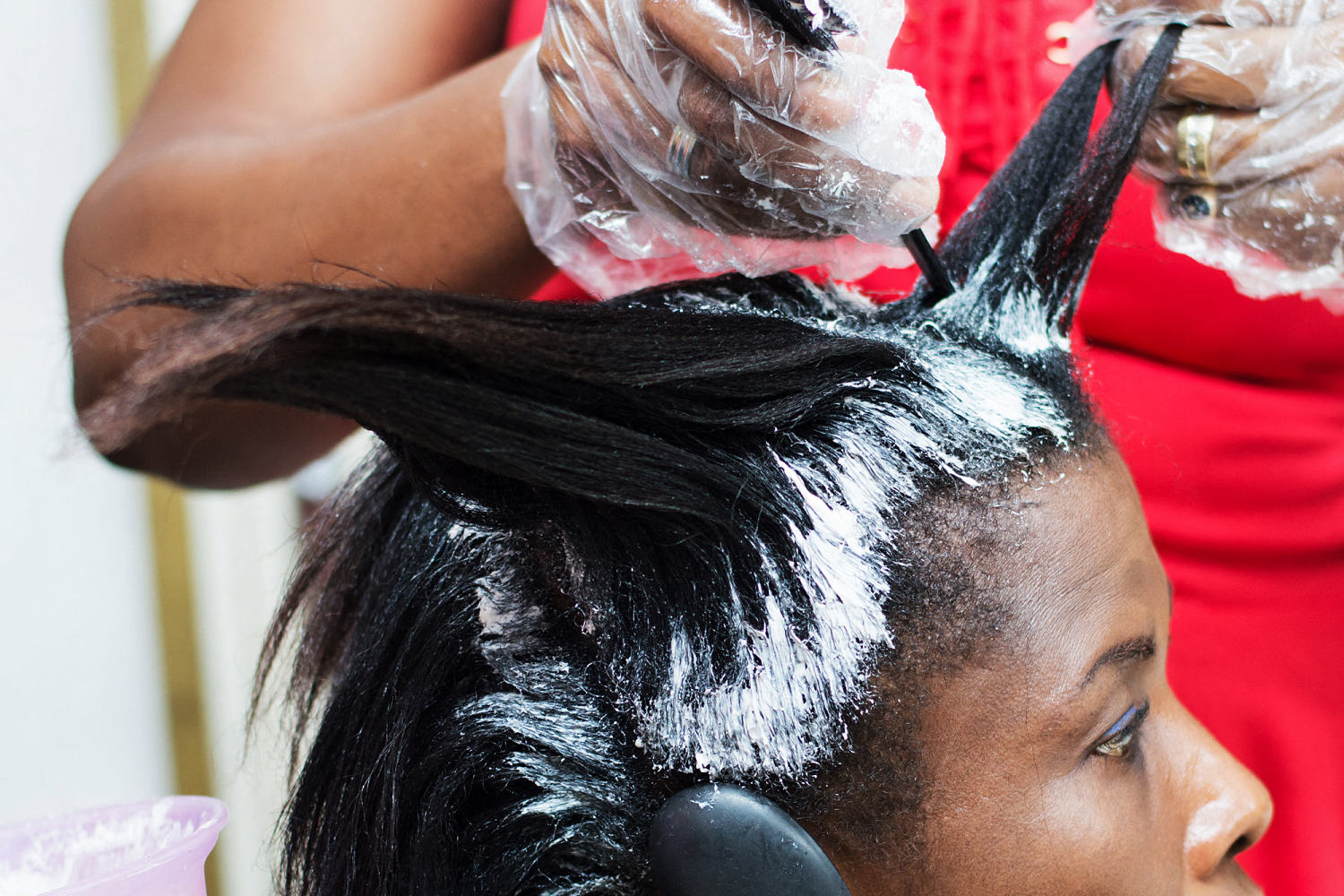FDA misses own deadline to propose ban on cancer-linked formaldehyde from hair relaxers


A proposal to ban formaldehyde in hair-straightening products that was scheduled to take place in April has not been released by the Food and Drug Administration, disregarding the agency’s own deadline.
The proposal had come after wide-ranging studies found an association between some of the ingredients in hair-smoothing and hair-straightening products, which are used mostly by Black women, and cancer.
It is unclear why the FDA has not released its proposed ban. The agency has not responded to requests for comment by NBC News.
In 2022, a decadeslong study by the National Institutes of Health of more than 33,000 Black women showed an increase in uterine cancer among those who regularly used hair relaxers.
Several women who had uterine cancer or other severe illnesses joined class-action lawsuits against major beauty product manufacturers, including L’Oreal and Revlon. Thousands of women allege that the hair products’ ingredients caused them to develop uterine cancer or other severe health problems.
Revlon did not comment on this article. Previously, Revlon told Reuters that the company does not “believe the science supports a link between chemical hair straighteners or relaxers and cancer.”
A L’Oreal spokesperson told NBC News on Wednesday that they don’t have formaldehyde in their products and the company would welcome the FDA ban.
“Our highest priority is the health and wellbeing of all our consumers,” the company said in a statement. “Our products are subject to a rigorous scientific evaluation of their safety by experts who also ensure that we strictly follow all regulations in every market in which we operate.”
Formaldehyde is used in many household products, including some topical medicines and cosmetics such as some nail polishes, hair gels, baby shampoos and others. Not all chemical hair-straighteners include it, but many do include components that, once heated, can release formaldehyde. It is highly toxic and linked to certain cancers, according to the National Cancer Institute.
“About 50% of products advertised to Black women contain these types of chemicals, compared to maybe only 7% that are advertised to white women,” Harvard T.H. Chan School of Public Health’s Tamarra James-Todd said in a radio interview in 2020.
According to the FDA’s comments on the proposal, the use of products containing formaldehyde and other formaldehyde-releasing chemicals “is linked to short-term adverse health effects, such as sensitization reactions and breathing problems, and long-term adverse health effects, including an increased risk of certain cancers.”
Last year, Democratic Reps. Ayanna Pressley of Massachusetts and Shontel Brown of Ohio sent a joint letter to the FDA commissioner urging more regulation over hair relaxers marketed toward Black women.
“As a result of anti-Black hair sentiment, Black women have been unfairly subjected to scrutiny and forced to navigate the extreme politicization of hair,” Brown and Pressley wrote. “Hence, generations of Black women have adapted by straightening hair in an attempt to achieve social and economic advancement.”
In an exclusive statement to NBC News, Pressley urged the FDA to finalize the ban.
“The FDA’s proposal to ban harmful chemicals in hair relaxers is a win for public health — especially for the Black women whose health has been disproportionately put at risk due to systemic racism and anti-Black hair sentiment,” she said. “We have been pressing for this and the Administration should finalize this rule without delay.”
Melanie Benesh, the vice president of government affairs for the Environmental Working Group, a consumer product advocacy group, described the field of cosmetics as the “Wild, Wild West of regulation” since the FDA has historically had more limited authority over them, “compared to other items under their jurisdiction, like food and drugs,” Benesh said.
Her organization petitioned the FDA in 2011 and in 2021 to ban hair products with formaldehyde. Because the FDA has been long aware of the issue, she added, “this is one thing that they have clear authority to do. They can ban ingredients that are clearly adulterating products, that are clearly making that product unsafe for use.”
For more from NBC BLK, sign up for our weekly newsletter.







